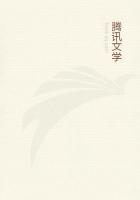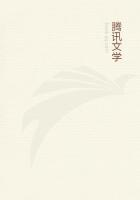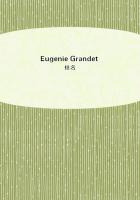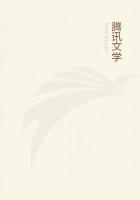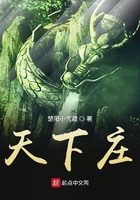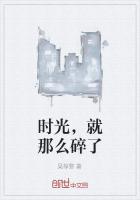This was, as is well known, patent in his life.It is as really, though perhaps less obviously, manifest in his poetry, the sincere effluence of his life.And it may not, therefore, be amiss to consider whether it was conditioned by anything beyond his congenital nature.For our part, we believe it to have been equally largely the outcome of his early and long isolation.Men given to retirement and abstract study are notoriously liable to contract a certain degree of childlikeness: and if this be the case when we segregate a man, how much more when we segregate a child! It is when they are taken into the solution of school-life that children, by the reciprocal interchange of influence with their fellows, undergo the series of reactions which converts them from children into boys and from boys into men.The intermediate stage must be traversed to reach the final one.
Now Shelley never could have been a man, for he never was a boy.
And the reason lay in the persecution which overclouded his school-days.Of that persecution's effect upon him, he has left us, in The Revolt of Islam, a picture which to many or most people very probably seems a poetical exaggeration; partly because Shelley appears to have escaped physical brutality, partly because adults are inclined to smile tenderly at childish sorrows which are not caused by physical suffering.That he escaped for the most part bodily violence is nothing to the purpose.It is the petty malignant annoyance recurring hour by hour, day by day, month by month, until its accumulation becomes an agony; it is this which is the most terrible weapon that boys have against their fellow boy, who is powerless to shun it because, unlike the man, he has virtually no privacy.His is the torture which the ancients used, when they anointed their victim with honey and exposed him naked to the restless fever of the flies.He is a little St.Sebastian, sinking under the incessant flight of shafts which skilfully avoid the vital parts.
We do not, therefore, suspect Shelley of exaggeration: he was, no doubt, in terrible misery.Those who think otherwise must forget their own past.Most people, we suppose, MUST forget what they were like when they were children: otherwise they would know that the griefs of their childhood were passionate abandonment, DECHIRANTS(to use a characteristically favourite phrase of modern French literature) as the griefs of their maturity.Children's griefs are little, certainly; but so is the child, so is its endurance, so is its field of vision, while its nervous impressionability is keener than ours.Grief is a matter of relativity; the sorrow should be estimated by its proportion to the sorrower; a gash is as painful to one as an amputation to another.Pour a puddle into a thimble, or an Atlantic into Etna; both thimble and mountain overflow.Adult fools, would not the angels smile at our griefs, were not angels too wise to smile at them?
So beset, the child fled into the tower of his own soul, and raised the drawbridge.He threw out a reserve, encysted in which he grew to maturity unaffected by the intercourses that modify the maturity of others into the thing we call a man.The encysted child developed until it reached years of virility, until those later Oxford days in which Hogg encountered it; then, bursting at once from its cyst and the university, it swam into a world not illegitimately perplexed by such a whim of the gods.It was, of course, only the completeness and duration of this seclusion--lasting from the gate of boyhood to the threshold of youth--which was peculiar to Shelley.Most poets, probably, like most saints, are prepared for their mission by an initial segregation, as the seed is buried to germinate: before they can utter the oracle of poetry, they must first be divided from the body of men.It is the severed head that makes the seraph.
Shelley's life frequently exhibits in him the magnified child.It is seen in his fondness for apparently futile amusements, such as the sailing of paper boats.This was, in the truest sense of the word, child-like; not, as it is frequently called and considered, childish.That is to say, it was not a mindless triviality, but the genuine child's power of investing little things with imaginative interest; the same power, though differently devoted, which produced much of his poetry.Very possibly in the paper boat he saw the magic bark of Laon and Cythna, or That thinnest boat In which the mother of the months is borne By ebbing night into her western cave.
In fact, if you mark how favourite an idea, under varying forms, is this in his verse, you will perceive that all the charmed boats which glide down the stream of his poetry are but glorified resurrections of the little paper argosies which trembled down the Isis.
And the child appeared no less often in Shelley the philosopher than in Shelley the idler.It is seen in his repellent no less than in his amiable weaknesses; in the unteachable folly of a love that made its goal its starting-point, and firmly expected spiritual rest from each new divinity, though it had found none from the divinities antecedent.For we are clear that this was no mere straying of sensual appetite, but a straying, strange and deplorable, of the spirit; that (contrary to what Mr.Coventry Patmore has said) he left a woman not because he was tired of her arms, but because he was tired of her soul.When he found Mary Shelley wanting, he seems to have fallen into the mistake of Wordsworth, who complained in a charming piece of unreasonableness that his wife's love, which had been a fountain, was now only a well:
Such change, and at the very door Of my fond heart, hath made me poor.
Wordsworth probably learned, what Shelley was incapable of learning, that love can never permanently be a fountain.A living poet, in an article which you almost fear to breathe upon lest you should flutter some of the frail pastel-like bloom, has said the thing:

